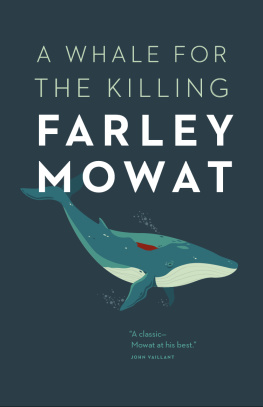Contents
Fawcett Crest Books by Mary Stewart:
THE HOLLOW HILLS
THE CRYSTAL CAVE
THE GABRIEL HOUNDS
AIRS ABOVE THE GROUND
THIS ROUGH MAGIC
THE MOON-SPINNERS
THE IVY TREE
MY BROTHER MICHAEL
NINE COACHES WAITING
THUNDER ON THE RIGHT
WILDFIRE AT MIDNIGHT
MADAM, WILL YOU TALK?
TOUCH NOT THE CAT
THIS
ROUGH
MAGIC
Mary Stewart
FAWCETT CREST NEW YORK
THIS ROUGH MAGIC
THIS BOOK CONTAINS THE COMPLETE TEXT OF
THE ORIGINAL HARDCOVER EDITION.
All characters in this book are fictional and any resemblance to persons living or dead is purely coincidental.
Published by Fawcett Crest Books, a unit of CBS Publications, the Consumer Publishing Division of CBS Inc., by arrangement with M. S. Mill Company, Inc.
Copyright 1964 by Mary Stewart
ISBN: 0-449-24129-7
Printed in the United States of America
For John Attenborough
Author's Note
Among the many debts I have incurred while writing this book, two are outstanding. I should like to thank especially Mr. Michael Halikiopoulos, Director of the Corfu Tourist Services, 5, Arseniou Street, Corfu, for all his kindness, and for the help he gave me. My other debt is to Mr. Antony Alpers, whose enchanting Book of Dolphins (John Murray, 1960) provided not only an inspiration, but also a great deal of information for this book.
M. S.
THIS ROUGH MAGIC
By
Mary Stewart
Chapter One
a relation for a breakfast
The Tempest, Act v, Scene 1
"And if it's a boy," said Phyllida cheerfully, "we'll call him Prospero."
I laughed. "Poor little chap, why on earth? Oh, of course Has someone been telling you that Corfu was Shakespeare's magic island for The Tempest?"
"As a matter of fact, yes, the other day, but for goodness' sake don't ask me about it now. Whatever you may be used to, I draw the line at Shakespeare for breakfast" My sister yawned, stretched out a foot into the sunshine at the edge of the terrace, and admired the expensive beach sandal on it. "I didn't mean that, anyway, I only meant that we've already got a Miranda here, and a Spiro, which may not be short for Prospero, but sounds very like it."
"Oh? It sounds highly romantic. Who are they?"
"A local boy and girl: they're twins."
"Good heavens. Papa must be a literary gent?"
Phyllida smiled. "You could say so."
Something in her expression roused my curiosity, just as something else told me she had meant to; so Iwho can be every bit as provoking as Phyllida when I trysaid merely, "Well, in that case hadn't you better have a change? How about Caliban for your unborn young? It fits like a glove."
"Why?" she demanded indignantly.
" 'This blue-eyed hag was hither brought with child,' " I quoted. "Is there some more coffee?"
"Of course. Here. Oh, my goodness, it's nice to have you here, Lucy! I suppose I oughtn't to call it luck that you were free to come just now, but I'm awfully glad you could. This is heaven after Rome."
"And paradise after London. I feel different already. When I think where I was this time yesterday and when I think about the rain"
I shuddered, and drank my coffee, leaning back in my chair to gaze out across pine tops furry with gold towards the sparkling sea, and surrendering myself to the dreamlike feeling that marks the start of a holiday in a place like this when one is tired and has been transported overnight from the April chill of England to the sunlight of a magic island in the Ionian Sea.
Perhaps I should explain (for those who are not so lucky as I) that Corfu is an island off the west coast of Greece. It is long and sickle-shaped, and lies along the curve of the coast; at its nearest, in the north, it is barely two miles off the Albanian mainland, but from the town of Corfu, which is about halfway down the curve of the sickle, the coast of Greece is about seven or eight miles distant. At its northern end the island is broad and mountainous, tailing off through rich valleys and ever decreasing hills into the long, flat scorpion's tail of the south from which some think that Corfu, or Kerkyra, get' its name.
My sister's house lies some twelve miles north of Corfu town, where the coast begins its curve towards the mainland, and where the foothills of Mount Pantokrator provide shelter for the rich little pocket of land which has been part of her husband's family property for a good many years.
My sister Phyllida is three years older than I, and when she was twenty she married a Roman banker, Leonardo Forli. His family had settled in Corfu during the Venetian occupation of that island, and had managed somehow to survive the various subsequent "occupations" with their small estate more or less intact, and had even, like the Vicar of Bray, contrived to prosper. It was under the British Protectorate that Leo's great-grandfather had built the pretentious and romantic Castello dei Fiori in the woods above the little bay where the estate runs down to the sea. He had planted vineyards, and orange orchards, including a small plantation (if that is the word) of the Japanese miniature oranges called kom koyt for which the Forli estate later became famous. He even cleared space in the woods for a garden, and builtbeyond the southern arm of the bay and just out of sight of the Castelloa jetty and a vast boathouse, which (according to Phyllida) would almost have housed the Sixth Fleet, and had indeed housed the complicated flock of vessels in which his guests used to visit him. In his day, I gathered, the Castello had been the scene of one large and continuous house party: in summer they sailed and fished, and in the fall there were hunting parties, when thirty or so guests would invade the Greek and Albanian mainlands to harry the birds and ibexes.
But those days had vanished with the first war, and the family moved to Rome, though without selling the Castello, which remained, through the twenties and thirties, their summer home. The shifting fortunes of the Second World War almost destroyed the estate, but the Forlis emerged in postwar Rome with the family fortunes mysteriously repaired, and the then Forli SeniorLeo's fatherturned his attention once more to the Corfu property. He had done something to restore the place, but after his death three years ago his son had decided that the Castello's rubbed and faded splendours were no longer for him, and had built a pair of smallish modern villasin reality twin bungalowson the two headlands enclosing the bay of which the Castello overlooked the centre. He and Phyllida themselves used the Villa Forli, as they called the house on the northern headland; its twin, the Villa Rotha, stood to the south of the bay, above the creek where the boathouse was. The Villa Rotha had been rented by an Englishman, a Mr. Manning, who had been there since the previous autumn working on a book ("you know the kind," said my sister, "all photographs, with a thin trickle of text in large type, but they're good") The houses were connected with the road by the main drive to the Castello, and with one another by various paths through the woods and down into the bay.
This year the hot spring in Rome, with worse promised, had driven the Forlis early to Corfu, Phyllida, who was pregnant, had been feeling the heat badly, so had been persuaded to leave the two older children (whose school term was still running) with their grandmother, and Leo had brought her over a few days before I arrived, but had had to go back to his business in Rome, with the promise to fly over when he could at weekends, and to bring the children for Easter. So Phyllida, hearing that I was currently at a loose end, had written begging me to join her in Corfu and keep her company.
Next page
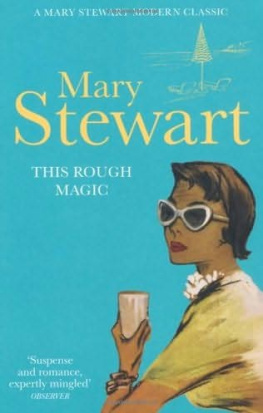
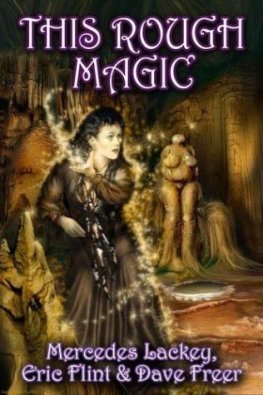



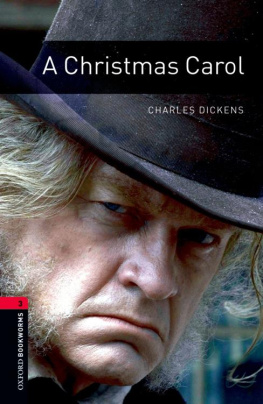
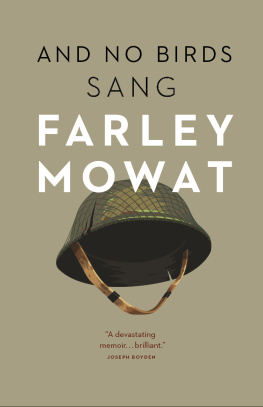
![Farley Mowat - People of the Deer [Paperback]](/uploads/posts/book/52958/thumbs/farley-mowat-people-of-the-deer-paperback.jpg)
